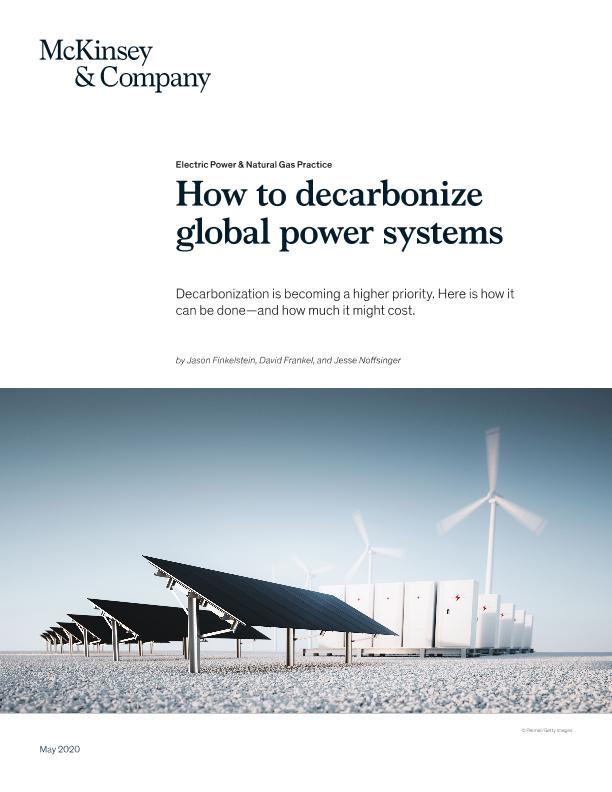How to decarbonize global power systems

Contenido multimedia no disponible por derechos de autor o por acceso restringido. Contacte con la institución para más información.
| Tag | 1 | 2 | Valor |
|---|---|---|---|
| LDR | 00000cam a22000004b 4500 | ||
| 001 | MAP20220015240 | ||
| 003 | MAP | ||
| 005 | 20220520113506.0 | ||
| 008 | 210617e20220504usa|||| ||| ||eng d | ||
| 040 | $aMAP$bspa$dMAP | ||
| 084 | $a922.14 | ||
| 110 | 2 | $0MAPA20220005418$aFinkelstein, Jason | |
| 245 | 0 | 0 | $aHow to decarbonize global power systems$cJason Finkelstein, David Frankel, Jesse Noffsinger |
| 260 | $aNew York$bMcKinsey & Company$c2022 | ||
| 300 | $a9 p. | ||
| 490 | 0 | $aElectric Power & Natural Gas Practice | |
| 520 | $aThe power sector is undergoing a global trans-formation. Over the past decade, the costs of renewables have dropped substantiallysolar power by as much as 80 percent and wind power by about 40 percentmaking them economically competitive with conventional fuels, such as coal and natural gas, in the vast majority of global markets. As a result, renewables are growing fast: they accounted for the majority of new power-generation capacity in 2018. In most markets, they are now the least expensive option to add marginal capacity. In addition, renewables make up an essential element of any country's plan to cut greenhouse-gas (GHG) emissions. | ||
| 650 | 4 | $0MAPA20080582500$aSector energético | |
| 650 | 4 | $0MAPA20220004336$aDescarbonización | |
| 650 | 4 | $0MAPA20080536435$aCO2 | |
| 650 | 4 | $0MAPA20080599287$aSuministro eléctrico | |
| 650 | 4 | $0MAPA20080546243$aBaterías | |
| 710 | 2 | $0MAPA20080442569$aMcKinsey & Company | |
| 830 | 0 | $0MAPA20210000430$aElectric Power & Natural Gas Practice |

